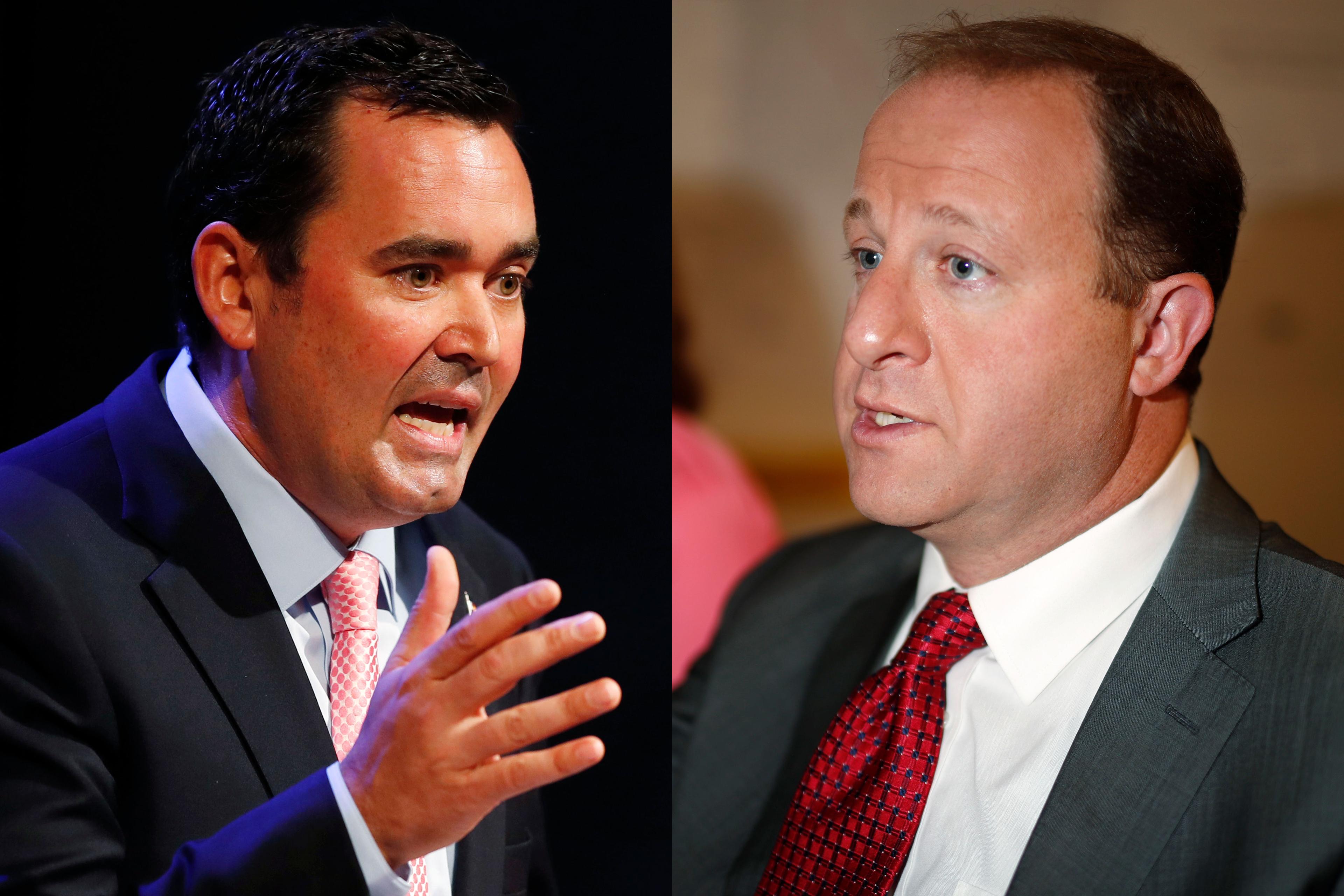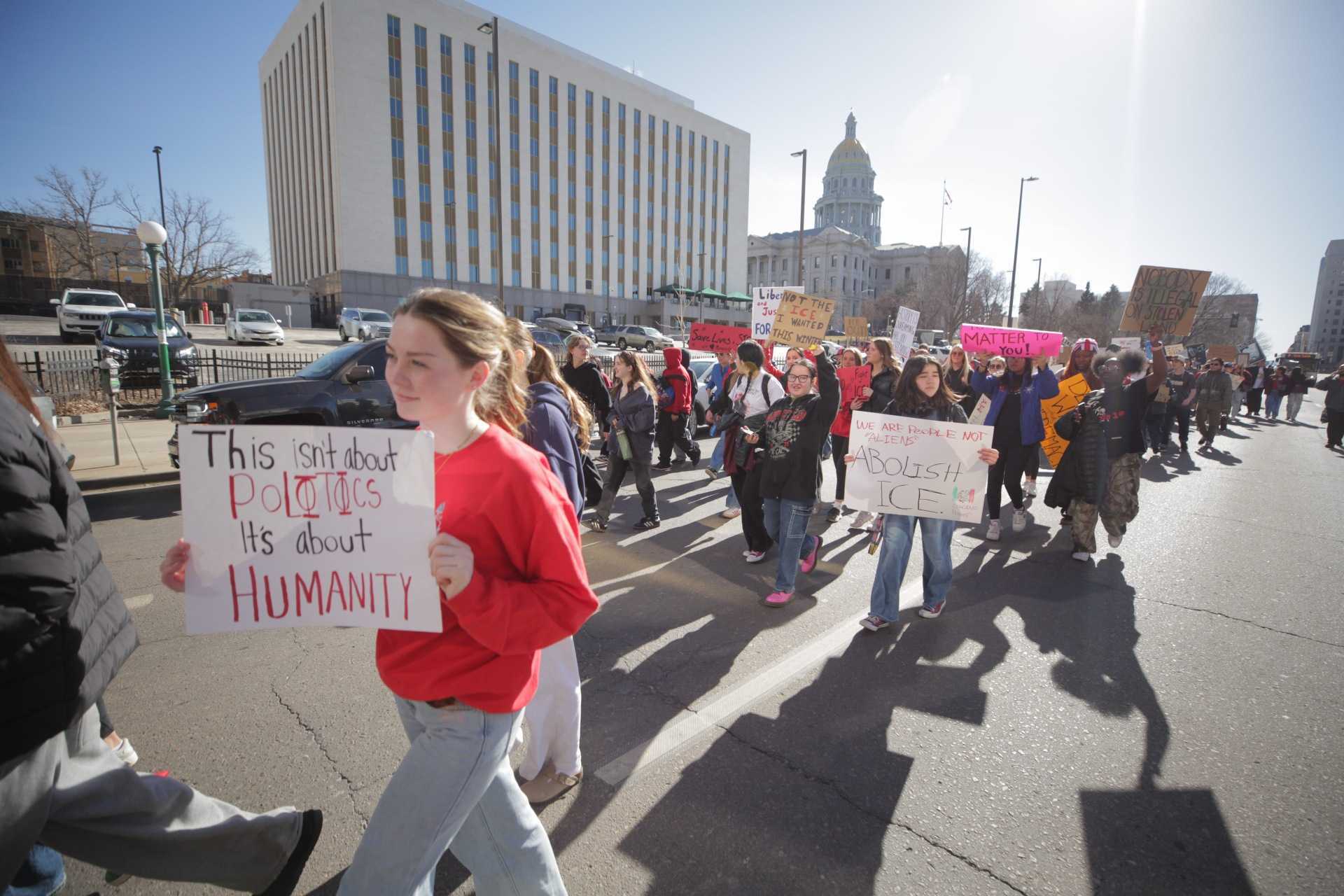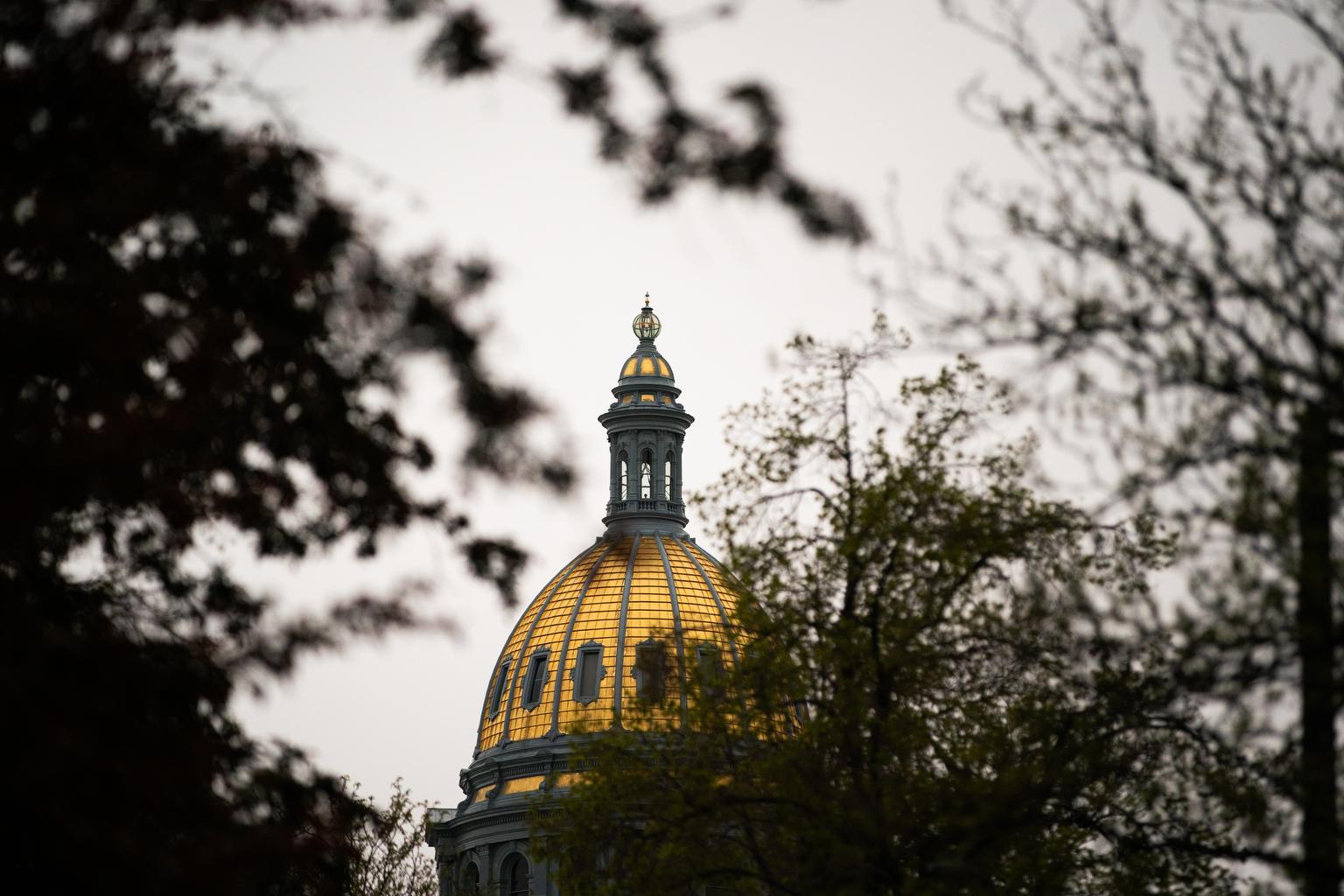
Republican Treasurer Walker Stapleton and Democratic U.S. Rep. Jared Polis clashed again Saturday over health care, guns and Colorado’s energy future in the fifth one-on-one debate of their gubernatorial race.
Stapleton again criticized Polis’ plans for a universal health care system, saying it will drastically boost taxes. “You won’t be able to afford to live in Colorado anymore,” he said.
Polis insisted Coloradans already pay too much for medical care and prescription drugs, especially compared with other industrialized countries with universal systems. “Coloradans are tired of being ripped off,” he said.
- Need Some Ballot Assistance? Read The Colorado Voter’s Guide To The 2018 Election
Saturday’s debate in Colorado Springs was sponsored by The Gazette, Colorado Politics and KOAA-TV. Ballots for the Nov. 6 election are being mailed to Colorado voters starting Oct. 15.
Stapleton said Polis’ promotion of a 100 percent green energy grid for Colorado by 2040 would bankrupt Coloradans. Polis insisted his goal is both aspirational and market-based and that Colorado’s economy and climate depend on an all-of-the-above energy plan.
Polis again called for restricting access to guns for those in crisis; Stapleton said he doesn’t support “unenforceable” gun restrictions. Polis urged voters to elect a pro-abortion rights governor; Stapleton said he’d be a “pro-life governor” who’d uphold “the law of the land” after both were asked what they’d do if the U.S. Supreme Court were to overturn Roe v. Wade.
Stapleton seeks to capture a governor’s seat last held by a Republican in 2007. Democrats are banking on a Polis victory and an anti-Donald Trump “blue wave” to flip the state Senate and consolidate control of Colorado’s statehouse. Colorado’s Democratic Gov. John Hickenlooper is term-limited.
Earlier Saturday, Stapleton had promised a good debate performance as he urged a small group of Denver Republicans to get out the vote.
“We don’t want a government telling us how to heat our homes or turn on our lights,” said Stapleton. “This is a watershed election in so many ways for Colorado.”
Polis rallied a group of women, some with children in tow, with the anti-gun violence group Mothers Demand Action at his Denver headquarters on Saturday.
“Some of you didn’t choose to be activists in this cause,” Polis told them. “Gun violence chose you.”
He renewed his call for a Colorado “red flag” law that would prevent those deemed a threat to themselves or others access to guns — a proposal killed this year by Republicans who control Colorado’s state Senate.
Polis noted that Stapleton not only opposes a red flag law but has said he would repeal ammunition magazine bans and enhanced background checks passed in Colorado after the 2012 Aurora movie theater shooting.
“If we don’t take the right path in this year’s race, there will be lives lost if red flag isn’t passed,” Polis declared. “Know that you are on the right side of history.”
Like their Republican counterparts, Polis’ audience — also canvassing Saturday — was energized.
“We’re going to win. We have no option,” said Jessica Pettigrew, a 35-year-old Denver nurse and midwife who became involved after her five-year-old son, Julias, participated in a lockdown drill at school.
She wore a T-shirt with the words “Thoughts and Prayers” crossed out and beneath them: “Policy Change.”
“I refuse to pass down the epidemic of gun violence to the next generation,” Pettigrew said.
Coy Ebell, 35, a downtown Denver precinct captain for Stapleton and tech engineer, said he was encouraged despite Denver’s traditionally Democratic leanings. He said Supreme Court Justice Brett Kavanaugh’s confirmation had rallied the party.
“People are energized by some of what the left has done,” said Ebell. “It’s still tough for us in a Democratic district, but people are so sick and tired of identity politics.”







